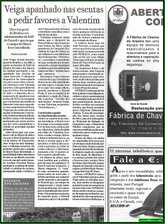North Korea - Who can stop him now?
America, China and Russia must all make sacrifices to stop a nuclear arms race in Asia and the Middle East
"WITH the possible exception of South Africa, no country that has tested an atomic bomb has given its nuclear weapons up. So no matter what the world now does to punish North Korea for its underground test on October 8th, Kim Jong Il's hermit kingdom is likely to hang grimly on to its bomb. If you are the paranoid dictator of a friendless state that is still technically at war with both South Korea and the United States, a nuclear arsenal is your ultimate insurance policy.
To say this is not to say that North Korea should go unpunished. On the contrary, it must be punished even if the punishment is unlikely to change its ways. That is because other would-be nuclear proliferators, with Iran to the fore, are now watching to see whether it is really as easy as Mr Kim has made it look to go nuclear in defiance not only of the dire warnings of the United States and the United Nations but also of powerful neighbours such as Russia and China.(...)" - LINK
American politics - Crash and re-boot
The wrong kind of voting machine could bring chaos to the mid-term elections
"THE polls go up, the polls go down and there are still more than three weeks to go: time for any amount of sleaze or terror to influence the voters. But it is quite possible that America's mid-term elections on November 7th will produce a close result, not just in the House of Representatives, where it has long been predicted, but in the Senate too. At which point things could get fraught.
The problem is voting machines. Not the ones with hole-punches and their chads, hanging, swinging and dimpled. Since the debacle of 2000 in Florida federal money to the tune of several billion dollars has been lavished on replacing them. Unfortunately, many have been replaced with new ones that may be even worse. In a close election the prospect of just a handful of the 435 House seats or one or two of the 33 Senate seats at stake being furiously challenged in court is all too plausible. Like the presidency in 2000, the colour of Congress could have to be decided by lawyers.
How could this have happened? Mainly because lots of states and counties went for touch-screen devices, very like ATMs, instead of a much better alternative, optical scanners that count votes marked by hand on paper ballots, rather like lottery forms or multiple-choice exam papers. The good thing about scanners is that the original ballot is by definition available for re-counting. With touch-screens, it isn't. Fortunately, more than half of America's 3,000-odd counties have opted for scanners. But about a third have chosen the touch-screens.(...)" - LINK
North Korea - The nightmare comes to pass
Now that North Korea has carried out a nuclear test, can anything be done to punish it? Or would the collapse of the regime be even more dangerous?
"THE reaction was swift, furious and unanimous. North Korea's (claimed) nuclear test on October 9th was “brazen”, said the Chinese government—unusually harsh words from North Korea's biggest provider of aid, and its only friend. “Unacceptable” and “provocative”, said President George Bush. He had talked to the leaders of Russia, China, South Korea and Japan; all had agreed that an “immediate response” was called for.
But what? The cries of outrage were followed by humming and shuffling—except in Japan, which almost immediately cut off trade. America's secretary of state, Condoleezza Rice, having stressed there would be no attack on Pyongyang, added that the North Koreans would now face sanctions “unlike anything they have faced before”. But might a more isolated North Korea behave even more badly? Or might sanctions trigger its collapse, bringing a flood of refugees and unleashing nuclear mayhem? (...) - LINK
Proliferation - A regime as rickety as his own
Kim Jong Il mocks the bargain between the nuclear haves and the have-nots
"BY HIS own standard George Bush is failing in his pledge, set out in his state-of-the-union message in 2002, not to allow the world's most dangerous regimes to acquire nuclear weapons. He invaded Iraq but found no nuclear programme; he failed to prevent Iran from rushing ahead with uranium enrichment that may be designed to make atomic bombs; and this week he could not stop North Korea carrying out what it claimed was its first nuclear test.
The actions of Pyongyang, on top of defiance from Tehran, pose the greatest threat to the Nuclear Non-Proliferation Treaty (NPT) since it was signed in 1968. Both countries are (or were) signatories. Experts fear that a nuclear North Korea may cause Japan, South Korea and Taiwan to seek nuclear weapons, while a nuclear Iran might prompt Saudi Arabia, Turkey, Syria and Egypt to follow suit.(...)" - LINK








































































.jpg)









0 comentários:
Enviar um comentário